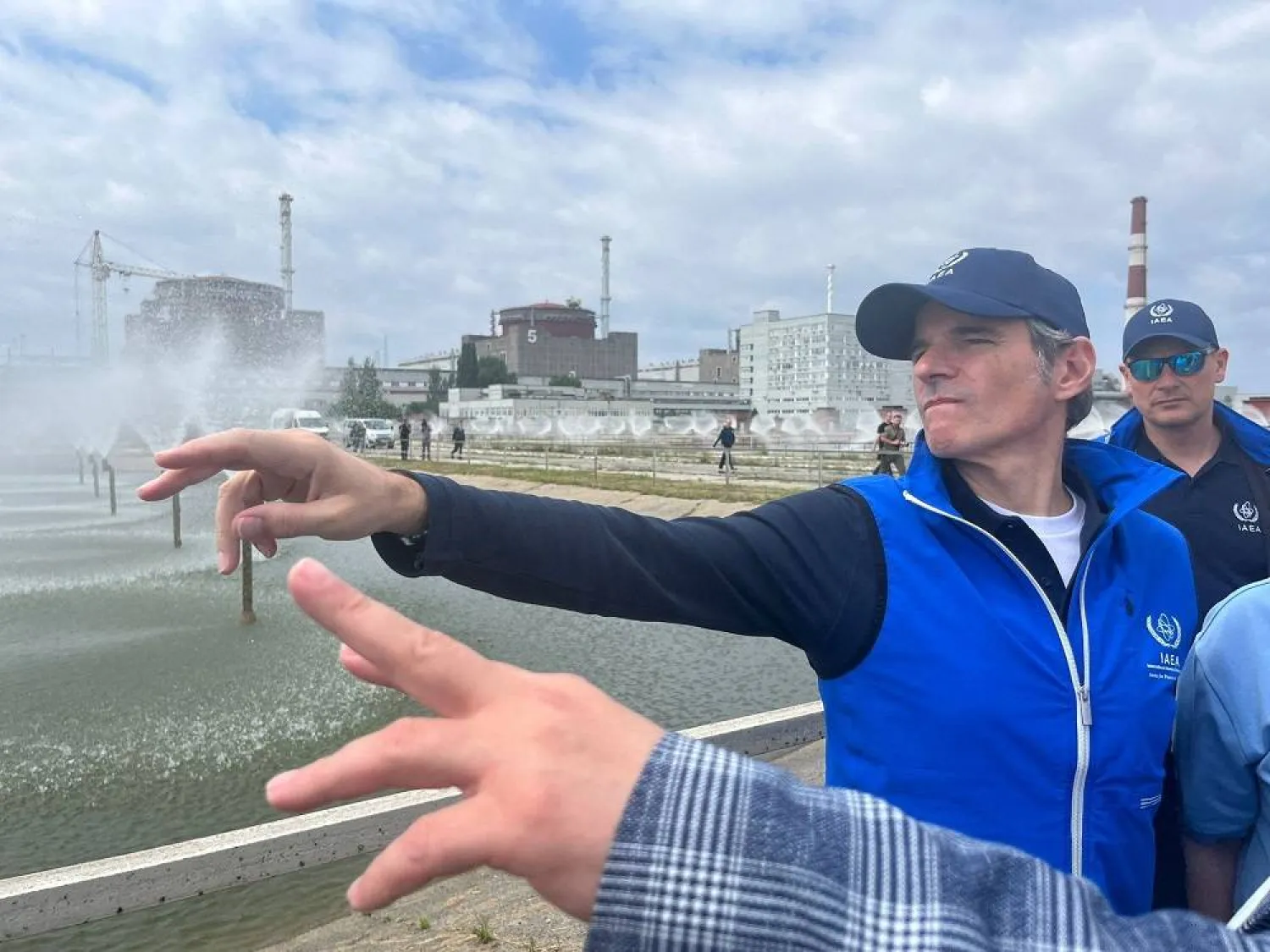The head of the UN atomic energy agency visited the Russian-controlled Zaporizhzhia nuclear plant in Ukraine on Thursday and said it was unrealistic to expect Moscow and Kyiv to sign a document on the site's security while fighting raged nearby.
Rafael Grossi, chief of the International Atomic Energy Agency (IAEA), was inspecting the state of the nuclear power plant, Europe's largest, following last week's devastating breach in the Kakhovka dam downstream on the Dnipro River.
The plant uses a cooling pond to keep its six reactors from potentially disastrous overheating. The Kakhovka reservoir was normally used to refill the pond but cannot do so now because of its falling water level following the breach, officials say.
Instead, the pond, which is separated from the reservoir, can be replenished using deep underground wells, they say.
Grossi, who had to pass through a Russian checkpoint to reach the plant, which is located near the military frontline, was quoted by Russian news agencies as saying the situation at the site was "serious" but that the level of cooling water was sufficient.
He also said that IAEA inspectors would remain at the site.
"We have a political agreement which was formulated at the (United Nations) Security Council. Reaching a written agreement would be unrealistic at this stage because, as we know, there are no peace or ceasefire negotiations between the parties," TASS news agency quoted Grossi as saying.
Grossi's trip to the Zaporizhzhia plant was delayed by a day for security reasons amid continued heavy fighting between Ukrainian and Russian forces.
Russian forces captured both the nuclear plant and the Kakhovka hydroelectric dam shortly after President Vladimir Putin sent them into Ukraine on Feb. 24, 2022.
Grossi has repeatedly called for an end to fighting in the vicinity of the facility to avoid any catastrophic accidents. The plant's six reactors are currently in shutdown.
Russia and Ukraine blame each for shelling the facility. This has repeatedly cut power lines. There are diesel generators at the plant, which also has alternative water sources.
Alexei Likhachev, head of Russia's state nuclear energy firm Rosatom, was quoted by RIA news agency as saying that Grossi had observed during his visit the security measures taken at the plant to ensure its safety following the breach of the dam.









